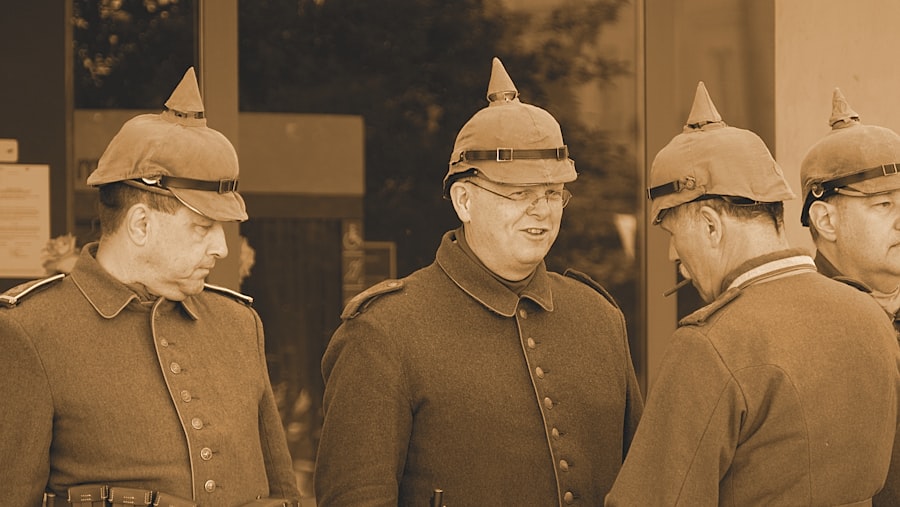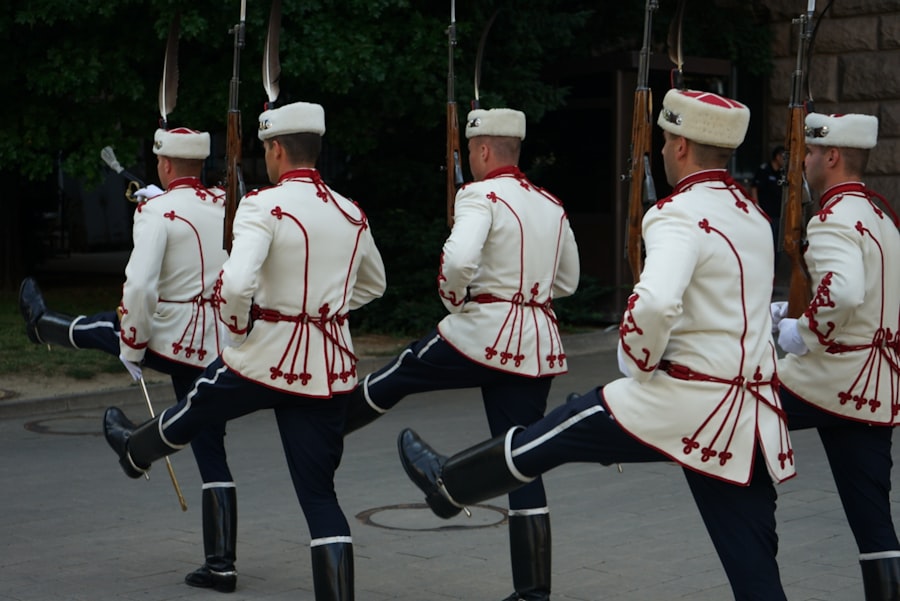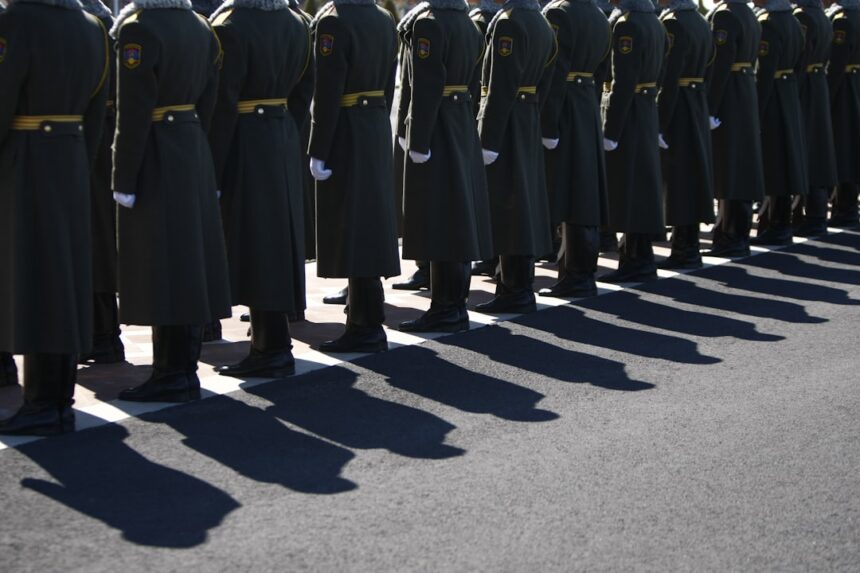In the complex landscape of the Russian military, the concept of buying rank has emerged as a controversial yet intriguing phenomenon. This practice, which involves individuals obtaining military ranks through financial means rather than traditional pathways of merit and service, raises significant questions about integrity, professionalism, and the overall effectiveness of the armed forces. The allure of a higher rank can be tempting for many, as it often comes with increased prestige, authority, and access to resources.
However, the implications of such transactions extend far beyond personal ambition, affecting the very fabric of military culture and operational efficacy. The notion of purchasing rank is not unique to Russia; it has historical precedents in various military organizations worldwide. However, in the context of the Russian military, it takes on a distinct character shaped by the country’s socio-political environment.
As individuals navigate this murky terrain, they must grapple with the ethical dilemmas and potential repercussions that accompany such decisions. Understanding the intricacies of this practice is essential for anyone seeking to comprehend the dynamics of power and influence within the Russian military establishment.
Key Takeaways
- Buying rank in the Russian military is a common practice with a long history.
- The hierarchy of rank in the Russian military is strictly defined and plays a crucial role in the organization.
- Rank in the Russian military is important for gaining respect, authority, and opportunities for advancement.
- There are various ways to buy rank in the Russian military, including through financial contributions, connections, and favors.
- Buying rank in the Russian military can come with significant financial costs and potential legal and ethical consequences.
Understanding the Hierarchy of Rank in the Russian Military
The hierarchy of rank in the Russian military is a structured system that delineates authority and responsibility among personnel. At its core, this hierarchy is designed to ensure order and discipline within the ranks, facilitating effective command and control during operations. The ranks range from private soldiers to high-ranking generals, each with specific roles and expectations.
This stratification is not merely ceremonial; it plays a crucial role in operational effectiveness and the maintenance of military discipline. Within this hierarchy, each rank carries with it a set of privileges and responsibilities that can significantly impact an individual’s career trajectory. Higher ranks often come with greater decision-making power, access to classified information, and opportunities for advancement.
As such, the desire to ascend this ladder can drive individuals to seek alternative means of achieving their goals, including the controversial practice of buying rank. This pursuit can create a distorted perception of meritocracy within the military, where financial resources may overshadow dedication and skill.
The Importance of Rank in the Russian Military

Rank holds immense significance in the Russian military, serving as a symbol of authority and respect. It is not merely a title; it represents years of service, training, and commitment to the nation. In a culture where hierarchy is deeply ingrained, rank influences interpersonal relationships among personnel and shapes the dynamics of command.
Officers are expected to lead by example, and their rank often dictates their level of influence over subordinates. Moreover, rank can affect operational effectiveness in critical ways. Higher-ranking officers are typically entrusted with strategic decision-making responsibilities that can determine the success or failure of missions.
The credibility that comes with rank can also enhance an officer’s ability to inspire loyalty and cohesion among troops.
The ramifications extend beyond individual careers; they can compromise unit cohesion and operational readiness.
The Different Ways to Buy Rank in the Russian Military
| Rank | Method of Entry | Education Requirements | Experience Requirements |
|---|---|---|---|
| Conscript | Compulsory Military Service | High School Diploma | N/A |
| Junior Officer | Military Academy Graduation | Bachelor’s Degree | N/A |
| Senior Officer | Military Academy Graduation or Direct Entry | Bachelor’s Degree | Several Years of Military Service |
| General | Promotion from Senior Officer | Bachelor’s Degree | Extensive Military Leadership Experience |
The methods through which individuals can buy rank in the Russian military are varied and often shrouded in secrecy. One common approach involves leveraging personal connections or networks within the military establishment. Individuals may seek out influential figures who can facilitate their ascent through informal channels, bypassing traditional pathways such as rigorous training or demonstrated competence.
This method often relies on a combination of financial incentives and social capital. Another avenue for purchasing rank involves direct financial transactions. In some cases, individuals may offer bribes or other forms of compensation to secure promotions or appointments to higher positions.
This practice not only raises ethical concerns but also poses significant risks for both parties involved. Engaging in such transactions can lead to legal repercussions and damage reputations within the military community. As individuals explore these avenues, they must weigh the potential benefits against the inherent risks associated with buying rank.
The Cost of Buying Rank in the Russian Military
The financial cost associated with buying rank in the Russian military can vary widely depending on several factors, including the desired rank and the specific circumstances surrounding each case. In some instances, individuals may find themselves paying substantial sums for promotions that would typically require years of dedicated service and proven performance. These costs can range from modest amounts to exorbitant fees that reflect the high stakes involved in securing a coveted position.
Beyond monetary expenses, there are additional costs to consider when engaging in this practice. Individuals may sacrifice their integrity and reputation by participating in unethical transactions that undermine the principles of meritocracy within the military. Furthermore, those who buy rank may find themselves ill-prepared for the responsibilities that accompany their new positions, leading to potential failures in leadership and operational effectiveness.
The allure of a higher rank must be carefully balanced against these multifaceted costs.
The Risks and Consequences of Buying Rank in the Russian Military

Engaging in the practice of buying rank carries significant risks that can have far-reaching consequences for individuals and the military as a whole. One of the most immediate dangers is the potential for legal repercussions. In Russia, corruption within military ranks is taken seriously, and those caught engaging in bribery or other illicit activities may face severe penalties, including imprisonment or expulsion from service.
Moreover, buying rank can lead to a breakdown of trust within military units. When personnel perceive that promotions are based on financial transactions rather than merit, it can foster resentment and demoralization among troops. This erosion of trust can compromise unit cohesion and operational effectiveness, as soldiers may question their leaders’ capabilities and motivations.
The long-term consequences of such disillusionment can be detrimental to national security and military readiness.
Tips for Successfully Buying Rank in the Russian Military
For those who may be considering buying rank in the Russian military, several strategies could enhance their chances of success while minimizing risks.
Building relationships with these individuals can provide valuable insights into navigating the system effectively.
Additionally, discretion is paramount when engaging in any transactions related to rank acquisition. Individuals should be cautious about discussing their intentions openly or involving too many parties in their plans. Maintaining a low profile can help mitigate potential backlash or scrutiny from superiors or peers who may disapprove of such practices.
Ultimately, those who choose this path must remain vigilant about their actions and be prepared for any consequences that may arise.
How to Navigate the Legal and Ethical Implications of Buying Rank
Navigating the legal and ethical implications of buying rank in the Russian military requires careful consideration and strategic planning. Individuals must be acutely aware of the laws governing military conduct and corruption within Russia. Engaging in bribery or other illicit activities can lead to severe legal consequences that extend beyond personal ramifications; they can also tarnish the reputation of entire units or branches within the military.
Ethically, individuals must grapple with their motivations for seeking higher ranks through questionable means. Reflecting on personal values and long-term career goals can help clarify whether pursuing rank through financial means aligns with one’s principles. Ultimately, those who choose to engage in this practice must weigh their ambitions against potential ethical dilemmas and consider how their actions may impact their colleagues and the broader military community.
The Impact of Buying Rank on Morale and Leadership in the Russian Military
The practice of buying rank has profound implications for morale and leadership within the Russian military. When personnel perceive that promotions are based on financial transactions rather than merit, it can lead to widespread disillusionment among troops. Soldiers may feel undervalued or demotivated if they believe that their hard work and dedication are overshadowed by those who have purchased their way into higher positions.
Furthermore, leadership effectiveness can be compromised when individuals ascend to ranks without possessing the requisite skills or experience. Leaders who lack credibility may struggle to inspire confidence among their subordinates, leading to decreased morale and operational effectiveness. The ripple effects of such dynamics can undermine unit cohesion and hinder mission success, ultimately impacting national security.
The Future of Buying Rank in the Russian Military
As societal attitudes toward corruption evolve, so too may perceptions regarding buying rank within the Russian military. Increased scrutiny from both domestic and international observers could lead to greater accountability measures aimed at curbing corrupt practices within military ranks. This shift could foster a renewed emphasis on merit-based promotions and professional development opportunities for personnel.
However, entrenched systems often resist change, particularly when financial incentives remain prevalent within military culture. The future landscape will likely depend on broader societal reforms aimed at addressing corruption across various sectors in Russia. As these changes unfold, individuals within the military will need to adapt to new norms while grappling with lingering challenges related to rank acquisition.
The Role of Buying Rank in the Russian Military
In conclusion, buying rank in the Russian military represents a complex interplay between ambition, ethics, and institutional integrity. While some may view it as a pragmatic approach to career advancement, others recognize its potential to undermine trust and effectiveness within military ranks. As individuals navigate this contentious terrain, they must weigh their aspirations against ethical considerations and potential consequences.
Ultimately, addressing the issue of buying rank requires a multifaceted approach that encompasses legal reforms, cultural shifts, and a renewed commitment to meritocracy within the armed forces. By fostering an environment where dedication and skill are prioritized over financial means, the Russian military can enhance its operational effectiveness while restoring faith among its personnel. The future trajectory will depend on collective efforts to address corruption while promoting values that uphold integrity within one of Russia’s most critical institutions.
In the intricate world of military hierarchies, the practice of purchasing ranks is a topic that raises significant ethical and operational concerns. An article titled “How Russian officers buy their rank” delves into this controversial issue, exploring the implications of such practices on military effectiveness and integrity. For those interested in a broader context of military operations and the challenges faced by armed forces, a related article can be found on the same platform. This piece provides additional insights into the complexities of military structures and the various factors that influence them. You can read more about these topics by visiting In The War Room.
WATCH NOW! 🎖️ Plot Twist: Russia’s Military Is Being Eaten Alive By Its Own Corruption
FAQs
What is the process for Russian officers to buy their rank?
The process involves paying bribes to higher-ranking officials in order to receive promotions and higher ranks within the Russian military.
Is this practice legal in Russia?
No, this practice is illegal and goes against the principles of meritocracy and fair promotion within the military.
What are the consequences for officers involved in buying their rank?
Officers involved in buying their rank can face severe disciplinary actions, including demotion, dismissal from the military, and potential criminal charges.
How does this practice impact the Russian military?
The practice of buying ranks undermines the integrity and effectiveness of the Russian military by promoting individuals based on financial means rather than merit and qualifications.
What measures are being taken to combat this practice?
The Russian government has implemented various anti-corruption measures and crackdowns to address this issue, including investigations, prosecutions, and efforts to promote transparency and accountability within the military.




